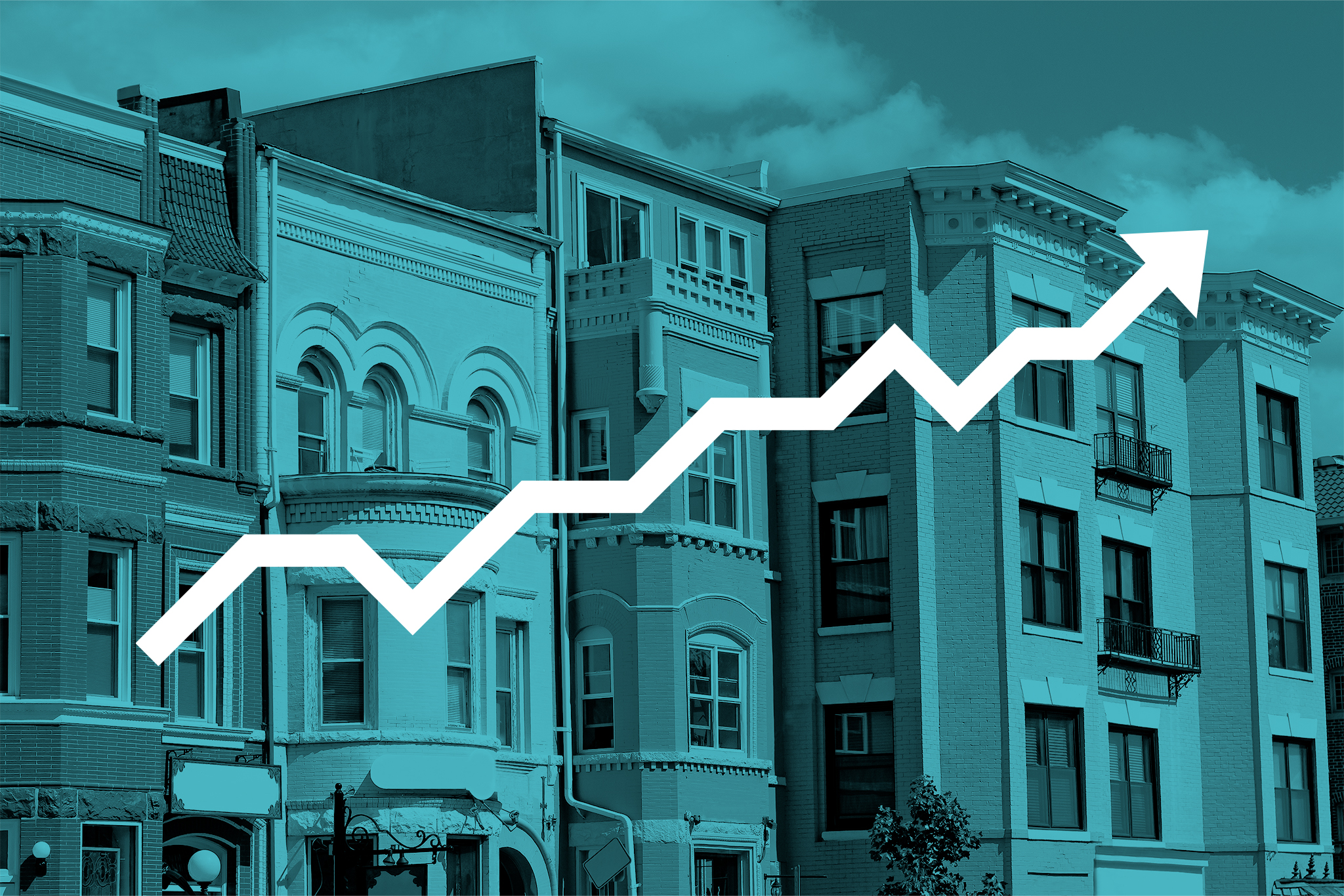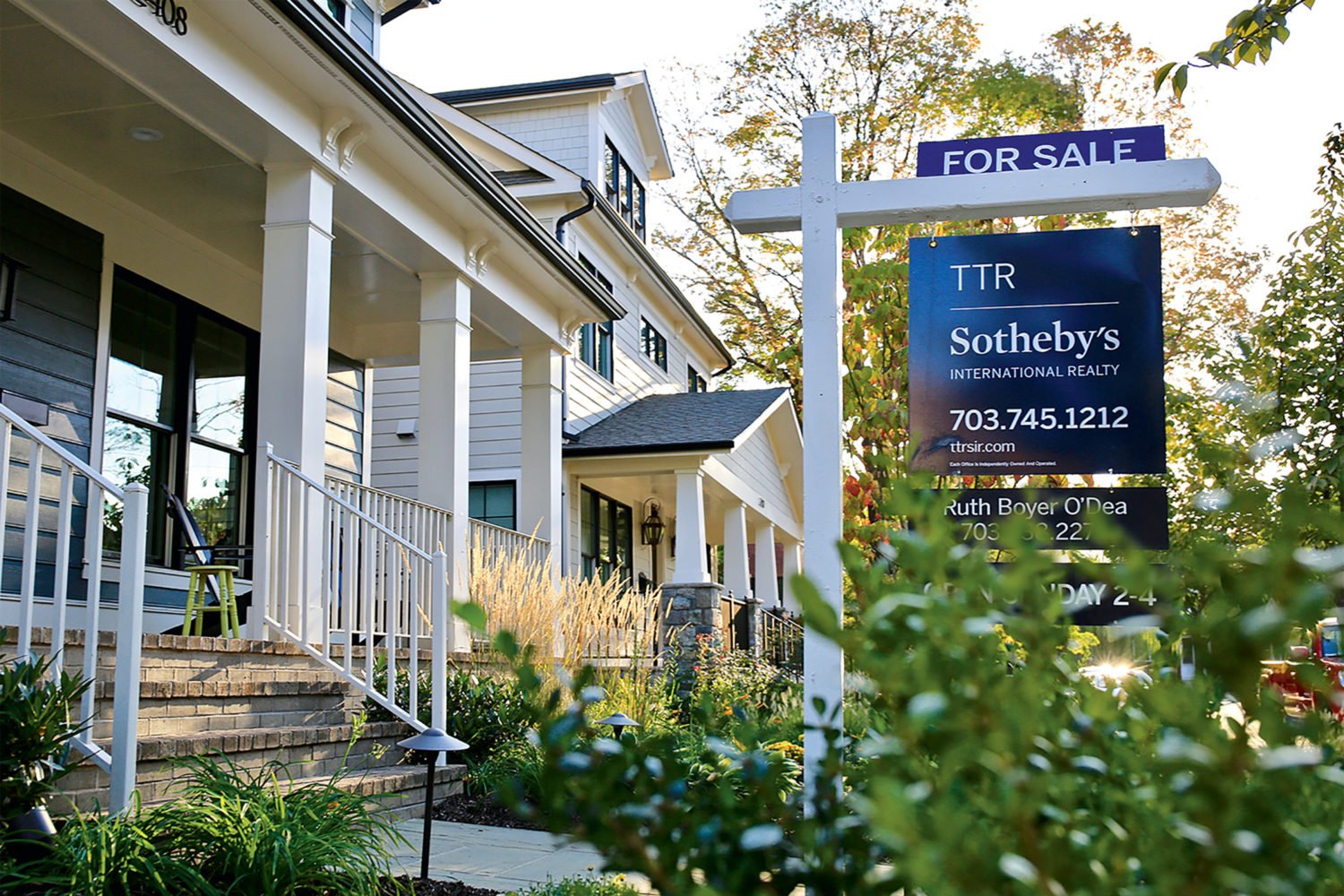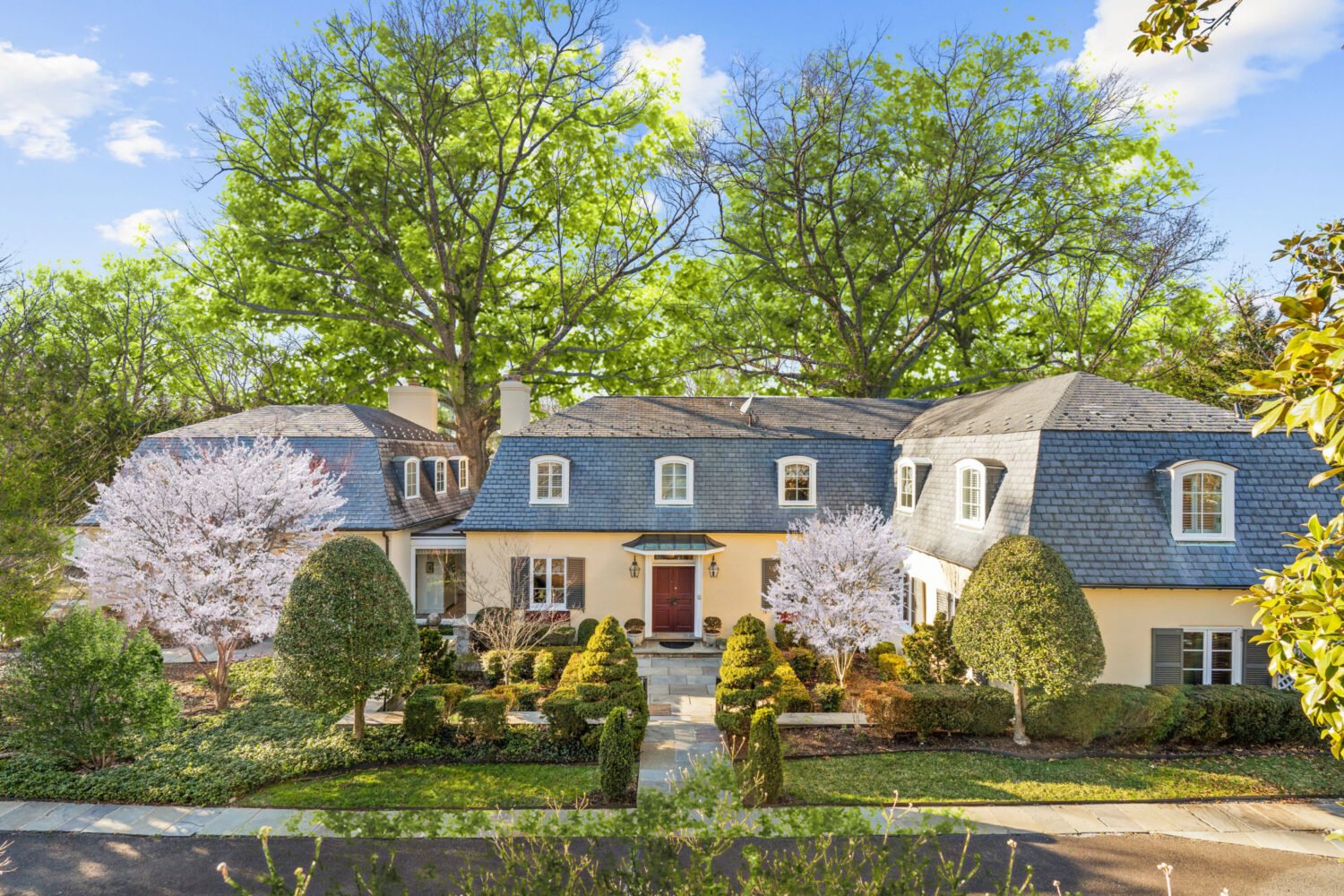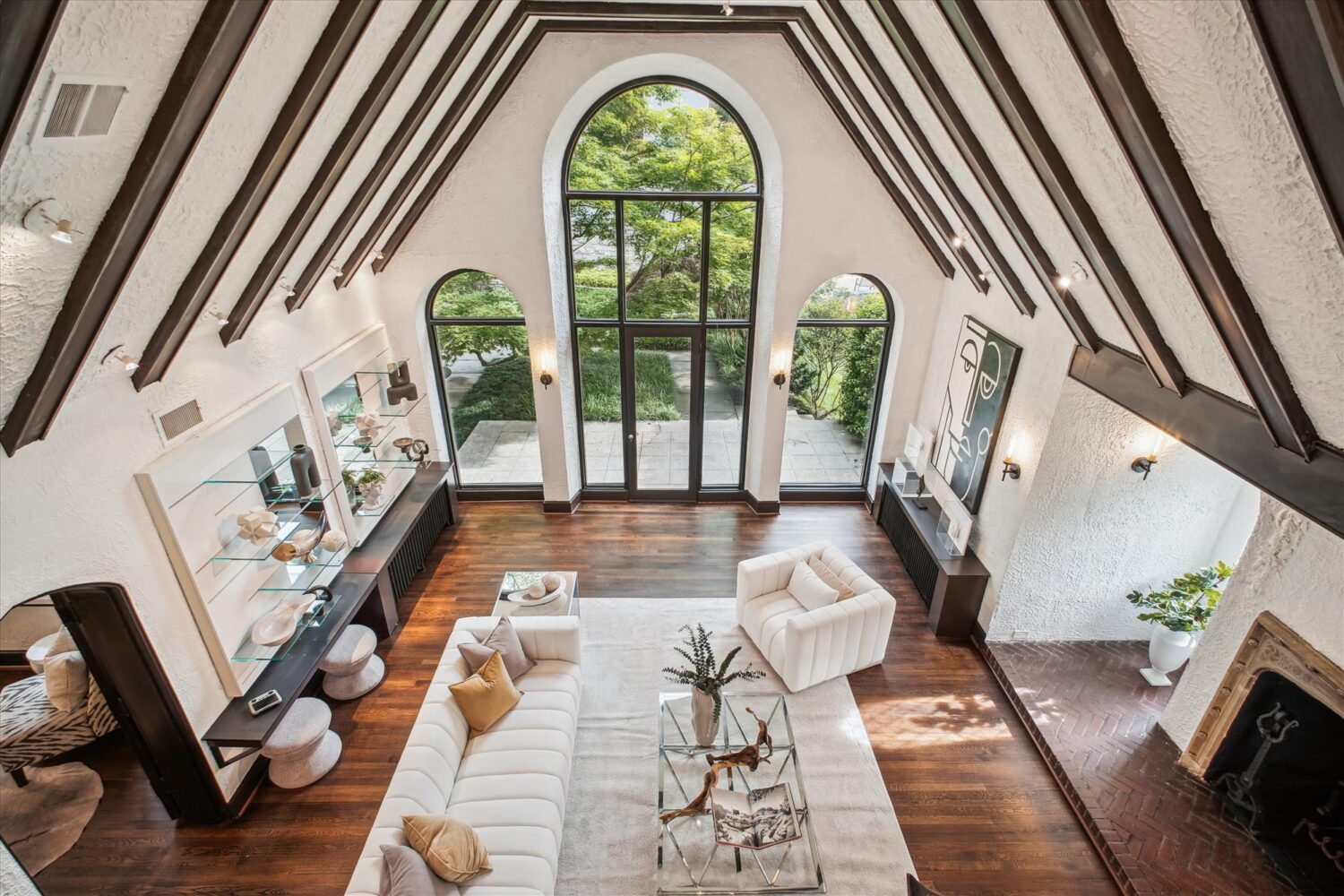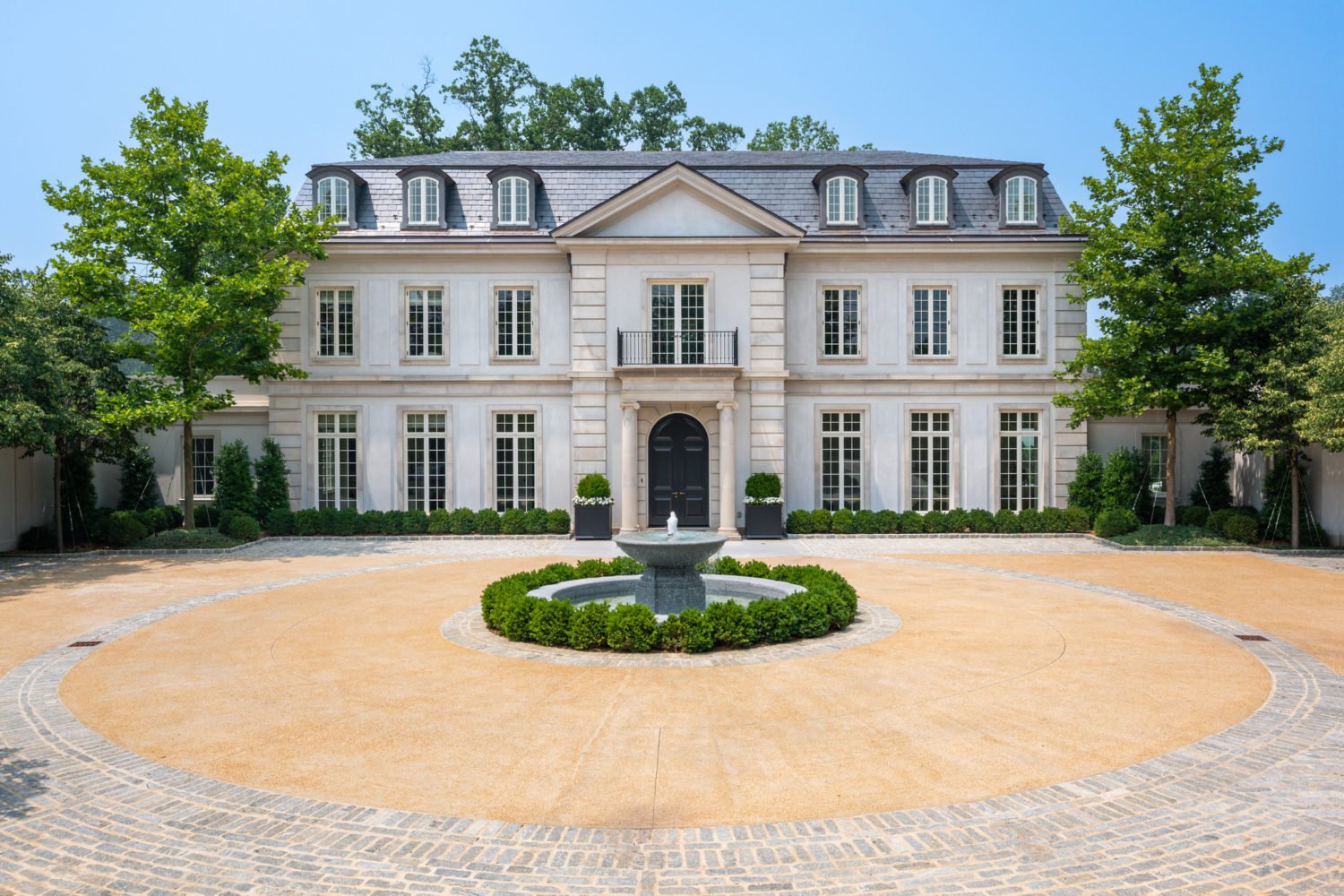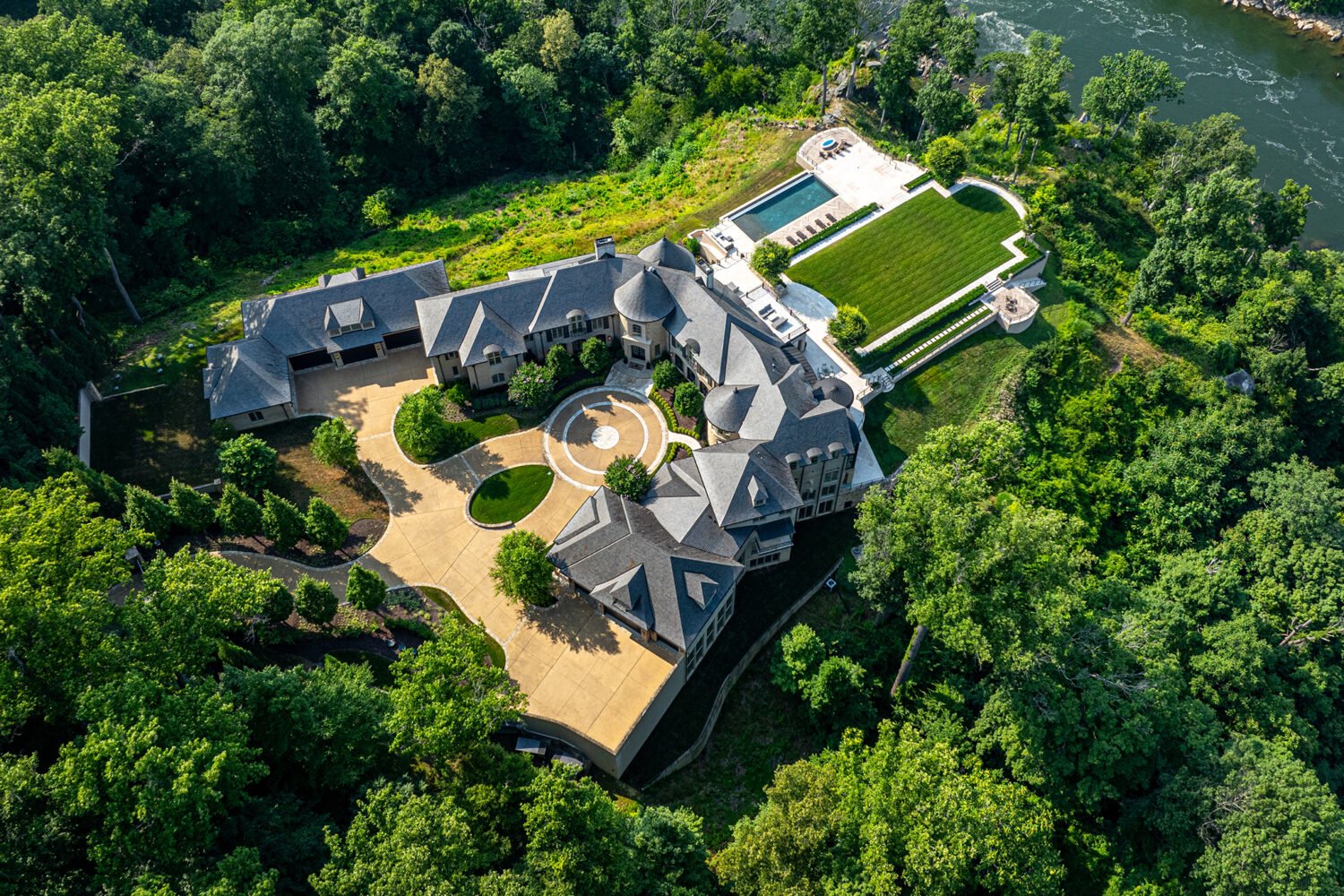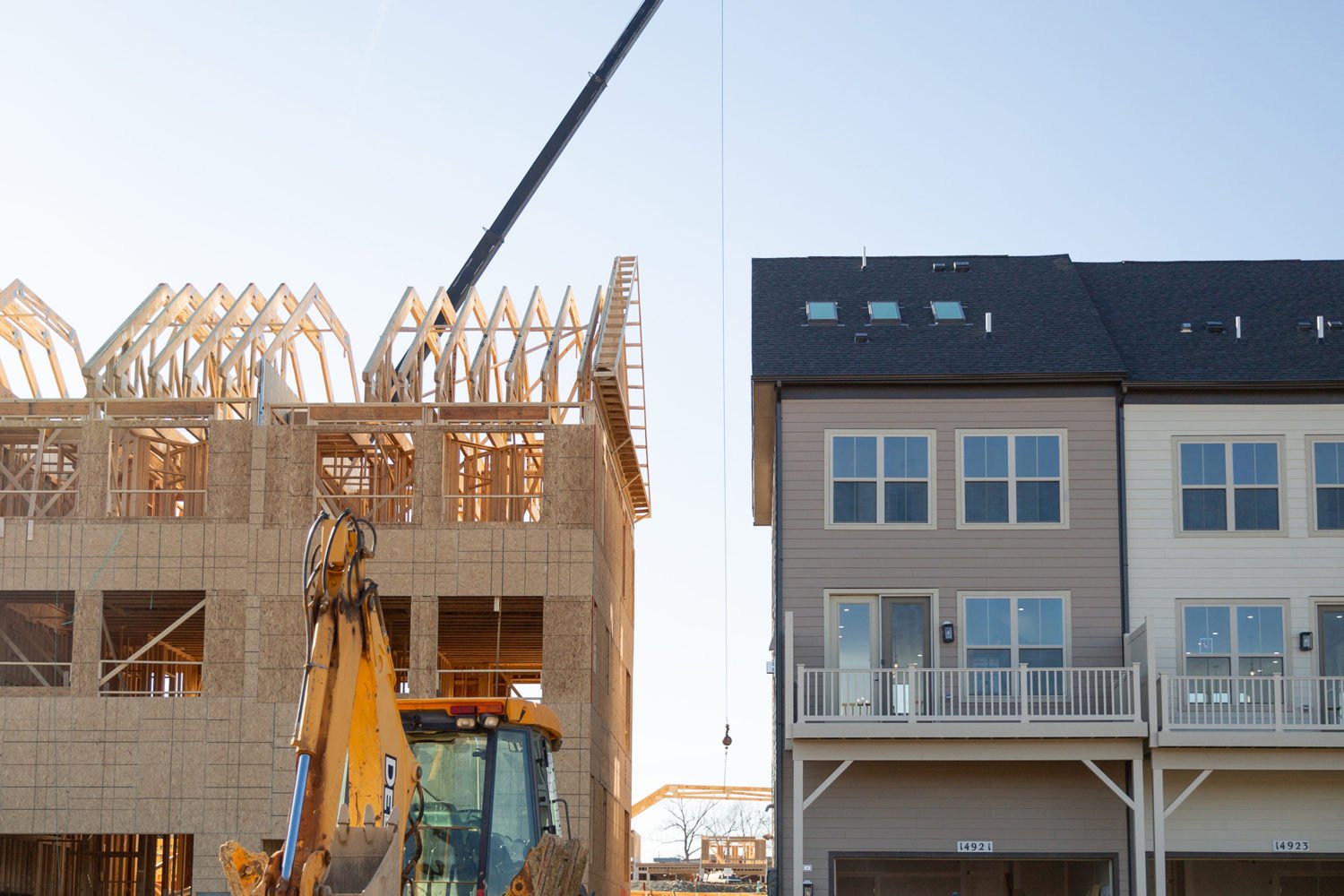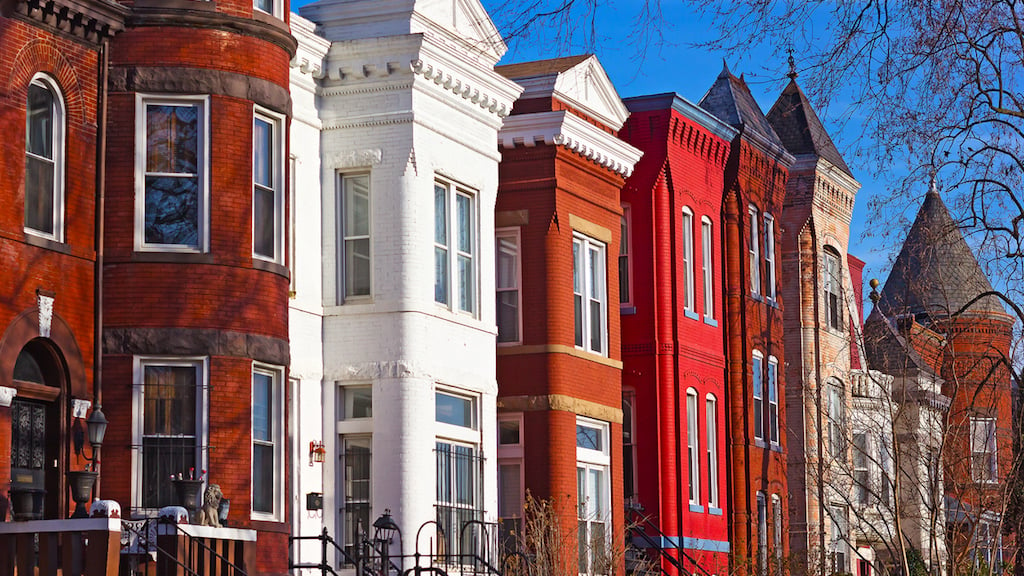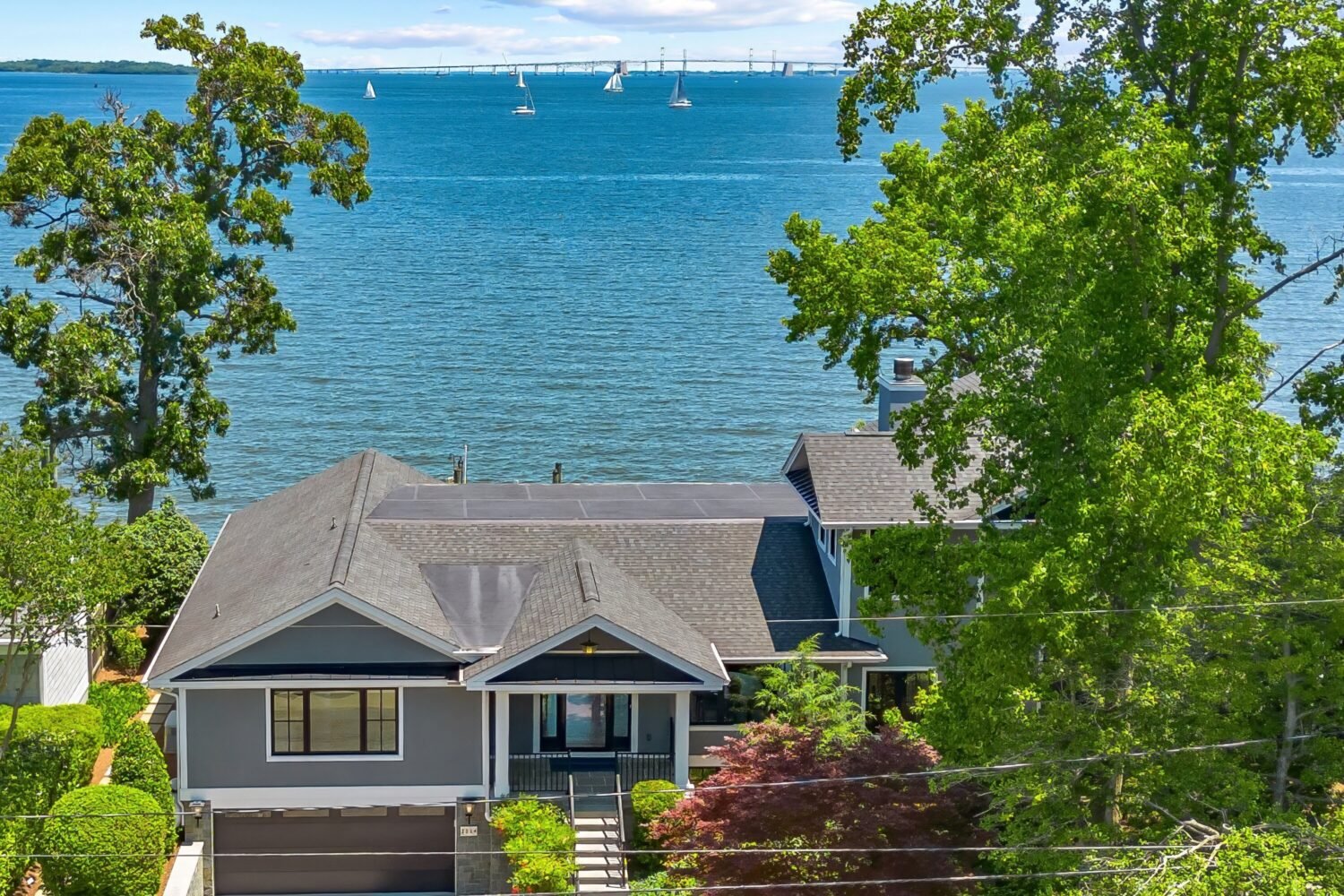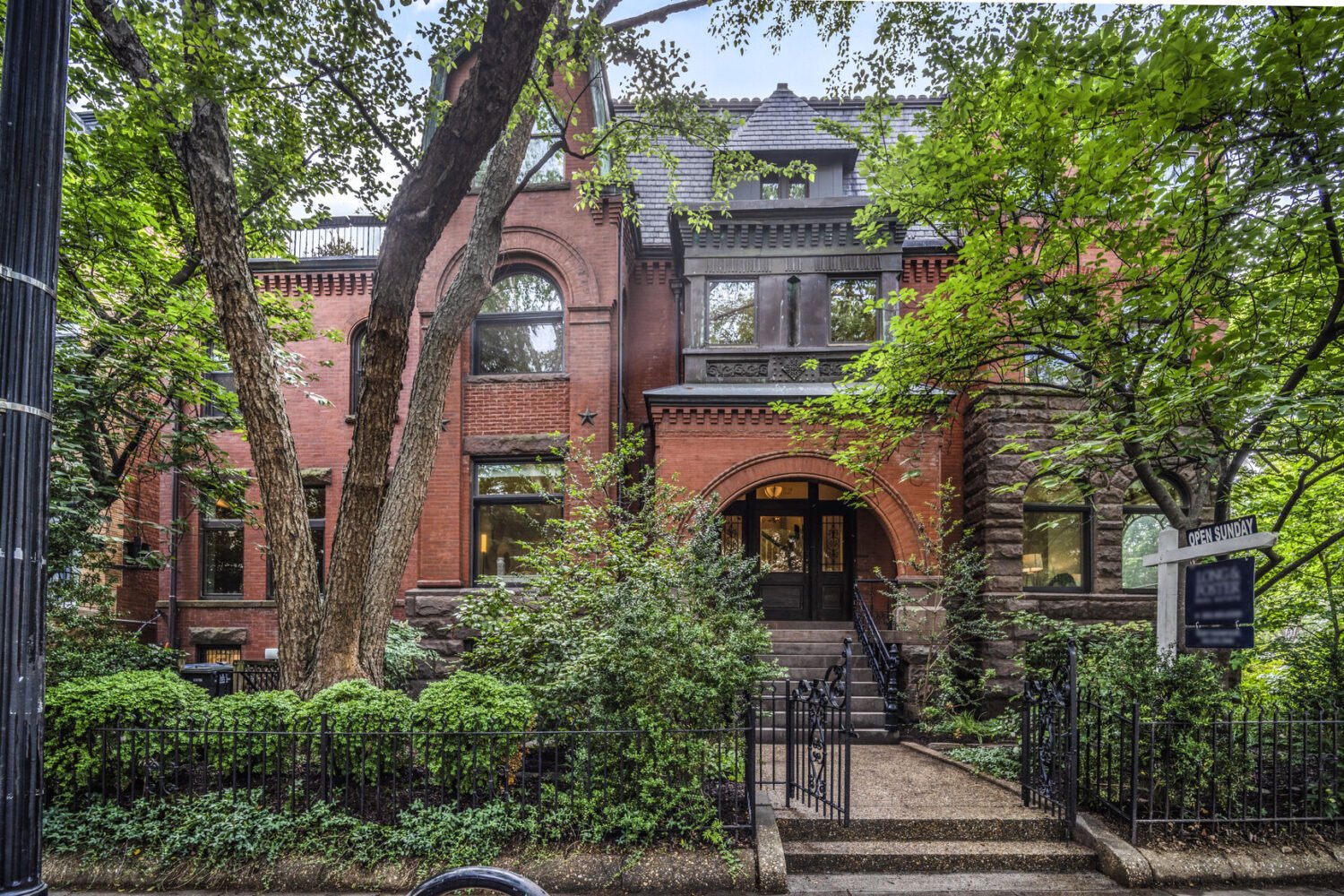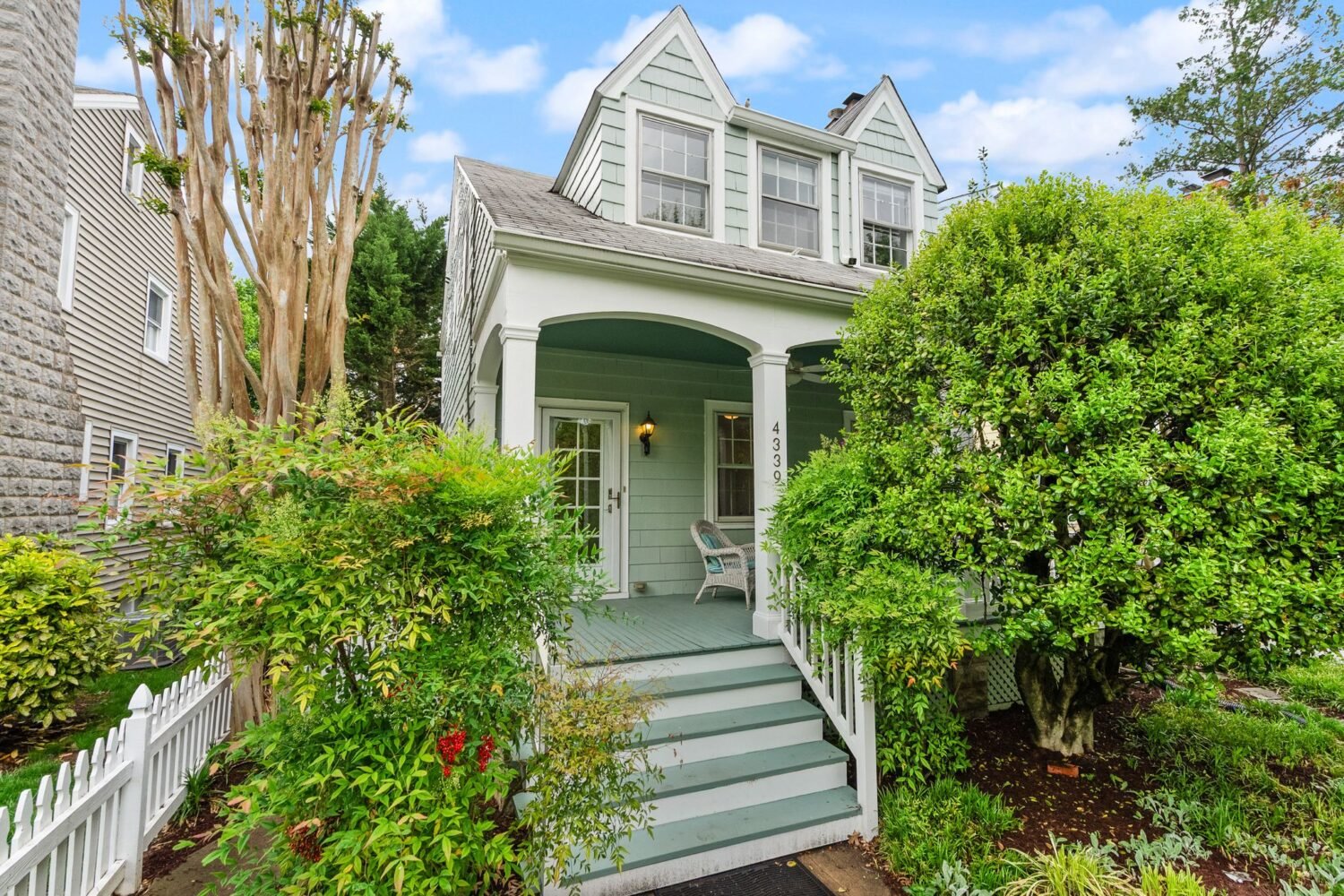When Amy Thomas and her husband, Navendu Shekhar—homeowners in the Barnaby Woods neighborhood of Chevy Chase DC—seriously started their home search in January, they fell in love with a house priced at $1.4 million that received 16 offers and sold for $2.2 million.
“The bidding wars created a sense of panic,” says Thomas, who works in human resources at Amazon Web Services. “Then mortgage rates started to go up, and now [in July] we have a greater sense of urgency to buy before rates go higher.”
Like other prospective buyers, Thomas and Shekhar, a market researcher for AARP, face a good-news/bad-news situation. While higher rates lowered their price range from $1.8 million to $1.4 million, they face less competition and aren’t as likely to see exponential price escalations.
Home sales in the Washington region slowed in recent months as higher mortgage rates and economic uncertainty pushed some buyers out of the market. While there’s not an overabundance of homes for sale, the limited inventory that created a hot seller’s market appears to have bottomed out. Prices continue to rise, but at a more moderate pace.
“While some pockets of the area will still be hot, we’ll see a more normal market this fall,” says Suzanne DesMarais, a real-estate agent at Compass in DC. “It won’t be a buyer’s market, but we’ll start to see some normal things happening, like offers contingent on a home inspection.”
Quick Market Shift
The gap in inventory gave sellers almost complete control over the housing market for years, says Bic DeCaro, an agent with eXp Realty in Great Falls: “Almost overnight, that just stopped when mortgage rates went up. It went from multiple offers to a few offers to often just one.”
“Now buyers can circle back if a property hasn’t sold in a couple of weeks, because they know it won’t sell for above the asking price. This market offers an opportunity for buyers.”
DeCaro points out that this is healthy, though sellers may need to readjust to home inspections and other contingencies. “This abrupt shift from a really crazy market isn’t that scary for people who have been in real estate a long time,” she says, “but it feels that way to people who only know the way the market has been the last few years.”
Homes still sell quickly, often within days, she explains, if priced to their value.
“As soon as the market shifted, buyers began to get really picky about the condition of a home,” says Melinda Estridge, an agent with Long & Foster in Bethesda. “Now that rates are higher, a lot of buyers had to lower their price range a little bit, and that makes them more concerned that they get the best value they can.”
Homes in the $600,000-to–$1.2 million range continue to receive at least a few offers if they’re in prime condition says Estridge: “Now buyers can circle back if a property hasn’t sold in a couple of weeks, because they know it won’t sell for above the asking price. This market offers an opportunity for buyers once they adjust to a 5- or 6-percent mortgage rate.”
The slight softening in the market means that those with older homes may have a harder time selling them, especially if they’re not updated, says DesMarais: “It used to be that buyers wanted a middle-priced house to improve, but now those are so hard to sell. But in some neighborhoods like Chevy Chase, we’ll still see escalation clauses for very high-quality homes that are in excellent condition.”
Thomas, who is working with Caroline Aslan of the Melinda Estridge Group, part of Long & Foster Real Estate in Bethesda, says she and her husband want to stay in Chevy Chase and are relieved to see that homes are now receiving a few offers instead of more than a dozen.
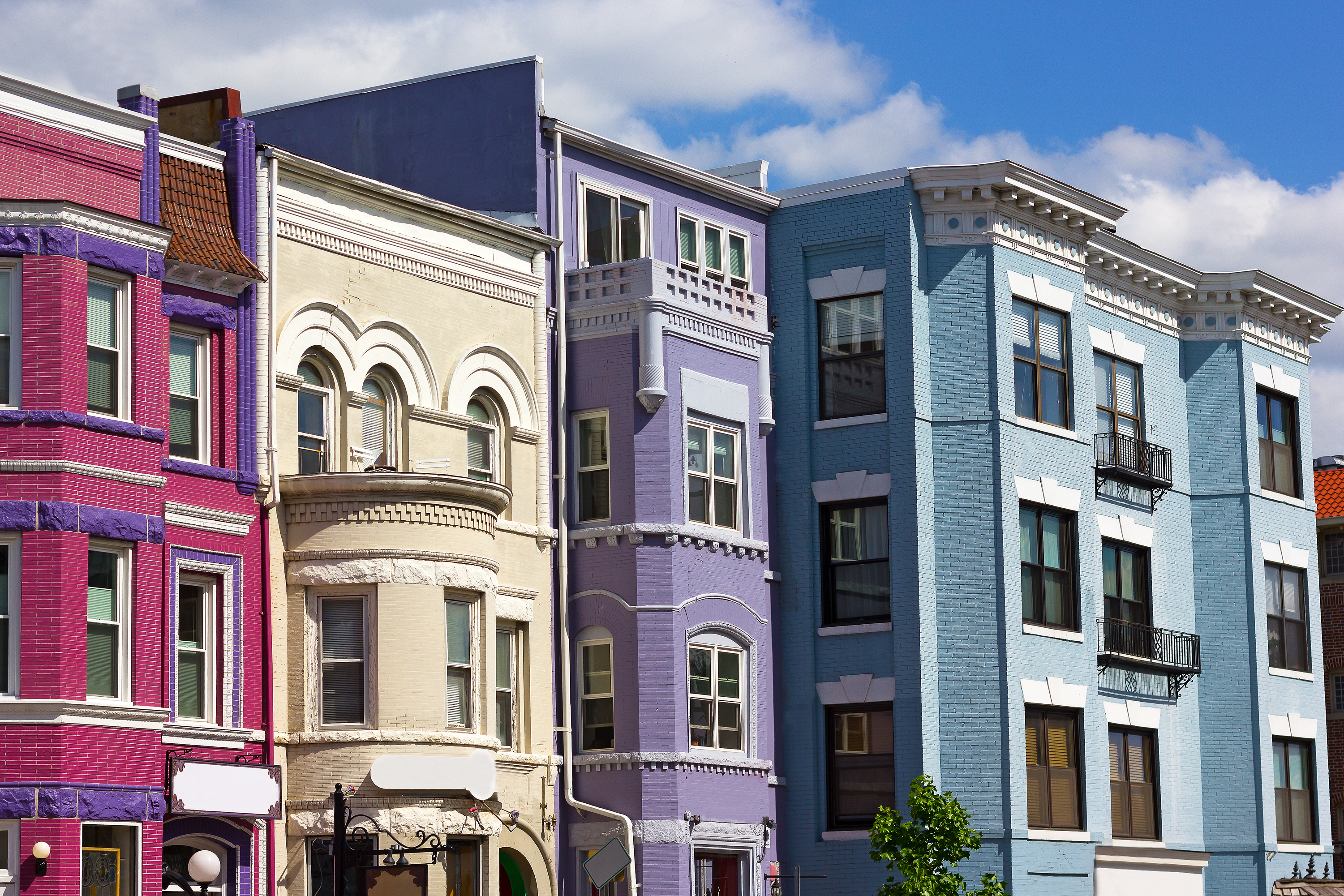
Buyers Who Are Also Sellers Benefit
For Paul Sathrum and Franco Russo, the slightly slower housing market in the spring made it easier for them to transition from a condo in Columbia Heights to a single-family home in North Brentwood, between Hyattsville and Mount Rainier.
“Even though we bought after rates went up, we probably got a better price on the house than we would have, because there was only one other bid,” says Sathrum, a teacher.
Russo, a senior program officer at the World Bank, says they received a quick, full-price offer for their condo. The couple worked with DesMarais and her team for both transactions and purchased in the $750,000-to-$800,000 range.
Strength in the DMV
While the market can differ from one neighborhood to another, DeCaro points out that our region continues to have job opportunities and a limited supply of homes, which will keep values steady.
“The DC market is active and well situated with the government and businesses,” says Estridge. “It’s not likely to take a hit unless mortgage rates go up to 7 or 8 percent, but that’s not likely to happen.”
Estridge anticipates that the spring 2023 market will be a good time to sell, because buyers will have adjusted to higher mortgage rates and prices should be steady.
Says DeCaro: “This isn’t like it was in 2008 and 2009, when lending was irresponsible and people were buying property without a down payment or any loan documentation. Now people have home equity and lenders are more cautious, so we’re not likely to see steep price drops.”
While first-time buyers are typically the hardest-hit by higher mortgage rates, DesMarais says higher rates are also causing residential investors to hesitate. That could free up more inventory for other buyers.
“This isn’t a buyer’s market—it’s just a normal balanced market,” says DeCaro. “The big change now is just that buyers aren’t getting the bad end of the stick anymore.”
This article appears in the October 2022 issue of Washingtonian.

